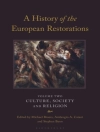Concentrating on the rivalry between the formal and informal empires of Great Britain, Japan and the United States of America, this book examines how regional relations were negotiated in Asia and the Pacific during the interwar years.
A range of international organizations including the League of Nations and the Institute of Pacific Relations, as well as internationally minded intellectuals in various countries, intersected with each other, forming a type of regional governance in the Asia-Pacific. This system transformed itself as post-war decolonization accelerated and the United States entered as a major power in the region. This was further reinforced by big foundations, including Carnegie, Rockefeller and Ford. This book sheds light on the circumstances leading to the collapse of formal empires in the Asia-Pacific alongside hitherto unknown aspects of the region’s transnational history.
A valuable resource for students and scholars of the twentieth century history of the Asia-Pacific region, and of twentieth century internationalism












